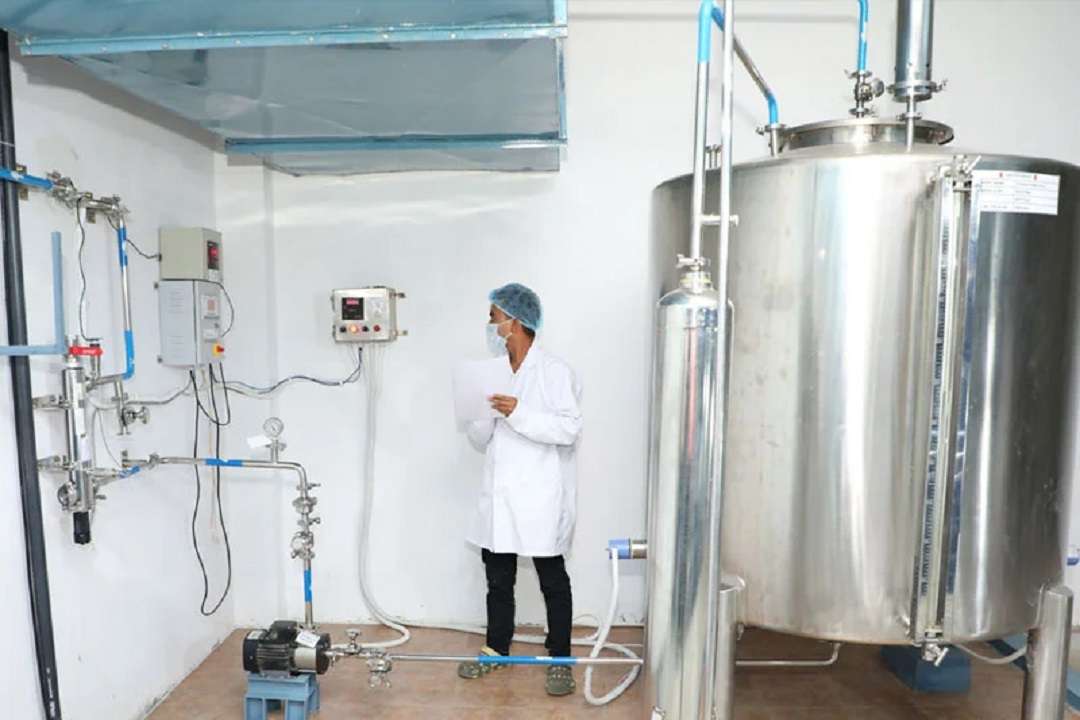Macsen Labs, a long-established manufacturer of APIs, dyes, and specialty chemicals since 1952, has announced a significant advancement in Sodium-Ion battery materials. The company has successfully developed a high-efficiency version of Prussian White—a next-generation cathode material—at its R&D facility. A provisional patent has been filed for the proprietary synthesis process, and early tests have demonstrated strong potential, paving the way for pilot-scale production.
“We began as a pharmaceutical company, but our journey into energy storage started when we were working on Prussian Blue for treating radiation exposure,” said Achal Agrawal, CEO of Macsen Labs and lead researcher on the project. “In the process, we discovered the promise of Prussian White for battery applications. That unexpected finding launched our efforts in this new domain.”
A year ago, with no formal experience in electrochemistry, Macsen’s team created a basic pouch cell in a conventional chemistry lab using in-house synthesized materials—without any specialized battery-making equipment. “We didn’t have a glovebox or any of the standard tools,” recalled Mr Agrawal. “When that small prototype cell powered an LED, we knew we were onto something real. That early success gave us the confidence to build a dedicated electrochemistry lab.”
Today, Macsen’s battery research center includes equipment such as an argon-filled glovebox, fabrication setups for coin and pouch cells, electrode coating machines, crimpers, vacuum dryers, and advanced testing systems like cyclers and potentiostats. This setup enables the company to prototype and evaluate new battery cells using materials produced in-house, cutting down development time.
Macsen is already producing Prussian White at the kilogram scale at its pilot chemical synthesis facility. Over the past year, the team has refined the synthesis process, achieving a version of Prussian White that ranks among the highest in quality and performance.
The material delivers an energy density above 150 mAh/g—comparable to Lithium Iron Phosphate (LFP)—while offering good stability, rapid sodium-ion transport due to its open crystal structure, and compatibility with current lithium-ion manufacturing systems. “It performs on par with LFP but is made from low-cost, widely available elements like sodium and iron,” said Mr Agrawal. “These materials are not only affordable but also free from geopolitical supply risks.”
The initiative, originally launched within Macsen Labs, is now being transitioned into a new venture named Macsen Energy, which will concentrate solely on innovations and commercialization in the energy storage sector.
According to Mr Agrawal, sodium-ion technology holds major promise not only for electric vehicles but particularly for stationary storage systems. “The real impact will come from supporting solar and wind energy storage—this is where large-scale transformation in India’s energy sector will happen.”
Macsen’s current battery design, using Prussian White as the cathode and hard carbon as the anode, is suited for applications such as solar and grid-tied storage systems, residential backup solutions, short-range electric mobility, auto-rickshaws, two-wheelers, urban buses, rural electrification, and energy access initiatives.
The company is now focused on improving key performance factors—such as cycle life, energy capacity, and charge rates—while also working to lower costs by optimizing the materials and cell components. One cost-saving advantage is the use of aluminum instead of copper for the cathode current collector, reducing raw material expenses.
To demonstrate commercial viability, Macsen is setting up a pilot-scale line for fabricating large-format battery cells. Equipment procurement is underway, and the facility is expected to be operational by early 2026.
“We see this as a critical opportunity for India to develop its own scalable, affordable, and homegrown energy storage ecosystem,” said Mr Agrawal. “Sodium-ion batteries could be a cornerstone in building that future.”
Macsen Labs, part of the NK Agrawal Group, is a chemical manufacturing organization with roots dating back to 1952. The company specializes in the production of niche Active Pharmaceutical Ingredients (APIs), pharmaceutical-grade dyes, precious and rare earth metal compounds, and other specialty inorganic chemicals.
Macsen is the only cGMP-compliant manufacturer offering a complete range of dyes for pharmaceutical and injectable applications. The company has a strong focus on the cGMP manufacturing of rare, atypical, and hard-to-source APIs.
Expanding its capabilities, Macsen has also launched new verticals in Pharmaceutical Analytical Services, Contract Research, and Custom Synthesis. Headquartered in Udaipur, Rajasthan (India)—the City of Lakes—Macsen Labs operates multiple manufacturing units in and around the region.







